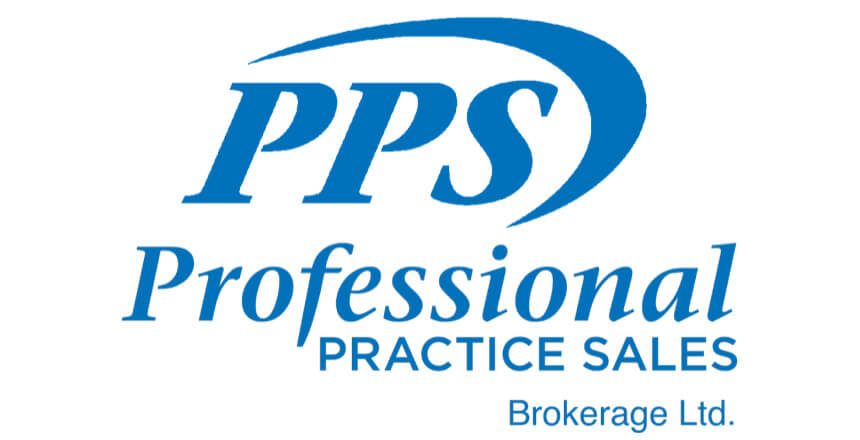
Your dental practice may be your most important financial asset to provide for your lifestyle and retirement needs. Not only is it an asset that can be sold, it also provides a significant income stream that generates savings and supports living expenses. This income streams includes your “sweat” (40% of your production), and the net income (profit after paying your overhead), typically 15%-20% of the practice’s total revenue. The analysis of these factors, combined with time considerations, is essential to maximizing your total return, both during ownership and when selling.
We are all aware that the dental practice sales market is strong for good practices. This trend is influenced by economics (supply and demand), favorable banking and insurance, as well as the influx of more and different types of buyers. The latter includes more buyers coming to Canada, and the recent phenomenon of “corporate” ownership.
In the past, there was a natural process about the timing of a sale. The older dentist would typically work until he/she was close to retiring, sell the dental practice, associate with the purchaser to help with the transition, and after a little time, retire completely.
Market conditions have changed. Now, some dentists are selling their practices earlier in their career than in the past. These changing conditions, may include additional stresses of ownership (staff, IPAC, patient demands, etc.), and/or, the opportunity of immediate or future financial returns.
In this new reality, purchasers have recognized that a dentist willing to continue to work in the practice long term is very valuable, and as such, have put together creative and/or attractive offers to address the objectives of a vendor.
In addition, many purchasers have significantly ramped up marketing efforts to acquire practices that were traditionally not ready for sale. In many cases, rather than the owner dentist making the decision to sell, the purchasing dentist is now convincing the owner to sell.
Is this new opportunity a good thing? Perhaps, but it may not be optimal. The issue is that the selling dentist typically makes this decision without first establishing his/her personal plan. This decision should NOT be a kneejerk reaction, driven by the fear of missing out, or as one dentist told me, “It seemed like a good idea at the time”. In many cases, the dentist only works with one purchaser and doesn’t obtain a proper valuation, hire an agent, create a long term financial plan or assess alternatives like keeping and improving the practice (make it better, hire a manager to reduce stress, hire an associate, etc.). Without properly evaluating the practice and dentist’s own value, the owner may end up selling too early, leaving money on the table, undervaluing the practice or worst of all, agreeing to a deal that doesn’t suit his/her future plans.
Consider the benefits of advance and appropriate planning. Recently, a dentist in his mid 50’s called us to review his practice as he was approached to sell. The offer seemed amazing, well above market value, equity ownership in the company, lots of cash, and freedom in all operations. The caveat was there was a very long term commitment and an earnings guarantee. When we analyzed the practice, we discovered that there was considerable upside potential in the current hygiene program, and with some tweaks cash flow could be improved by over 30%. Despite the offer being exceptional, the dentist decided to keep the practice, make the necessary changes to enhance the practice, and keep the income. He will now consider a sale closer to retirement.
A few years ago, I spoke to another dentist who had just sold his practice. A strong purchaser approached the dentist with an offer with a quick close, and they didn’t need a valuation. Based on the net results, we estimated that the practice was sold for 1 million dollars less than its true value, and the associateship compensation was also below market value. When asked why the dentist seek a broker’s advice, he replied that he was told there would be a 10% commission rate. This myth is propagated by some purchasers who don’t want you to call a broker. The reason for this is that brokers will generate broad exposure and ensure you achieve fair market value in this efficient market, which is disadvantageous for these types of buyers.
Remember that when you sell, you are giving up the net income or approximately 15-20% return per year based on the value of your practice. You are not likely to get that rate of return on the cash you have to invest. As a result, you must assess the benefits of what you are giving up (15-20% return on investment) versus gaining freedom from owner/management responsibilities. While the upfront money is alluring, you must consider the long term commitment you must make to receive it. It is not inconceivable that you may have to commit to working for the next 5-8 years, and you will be required to guarantee the practice’s income. While seemingly insignificant, there are huge risks with guarantees, as you are really not giving up equity responsibility or management responsibility and the financial risk is significant.
There are other stories where dentists have sold early, reaped financial rewards, continued to work, and are happy as they do not have any further management responsibilities. Either way, prior to making a decision to sell, dentists should proactively create a personal plan with the help of their trusted advisors. The plan should include these details:
- How long do you want to work?
- How would you like to improve your work life? (i.e. reduce management stress, focus on better dentistry, etc.)
- Under what conditions do you want to work? (Employee, partner, associate, owners, part- time)
- What is the current market value of your practice?
- What is the future of your practice? (opportunities to improve, risks of decline, competition, etc.)
- What are your financial goals? (Income today versus later, retirement needs, taxation, investment strategy.)
If the outcome of your plan is that it makes sense to sell, do yourself a favor and don’t go it alone! It’s usually a once-in-a-lifetime event and you don’t want to make a mistake. Use a good team of professionals to guide you.
Dental practices are an excellent investment and the owner is a very important asset of the practice. Whether you sell or decide to remain the owner, ultimately you have earned the right to transition your way, and the right to maximize your ultimate financial return.

